Washington DC
Leckie Education Campus Teaching Kitchen
Making Healthy Choices Engaging and Fun
status
Completed 2016
client
District of Columbia Department of General Services
expertise
Education
services
Landscape Architecture

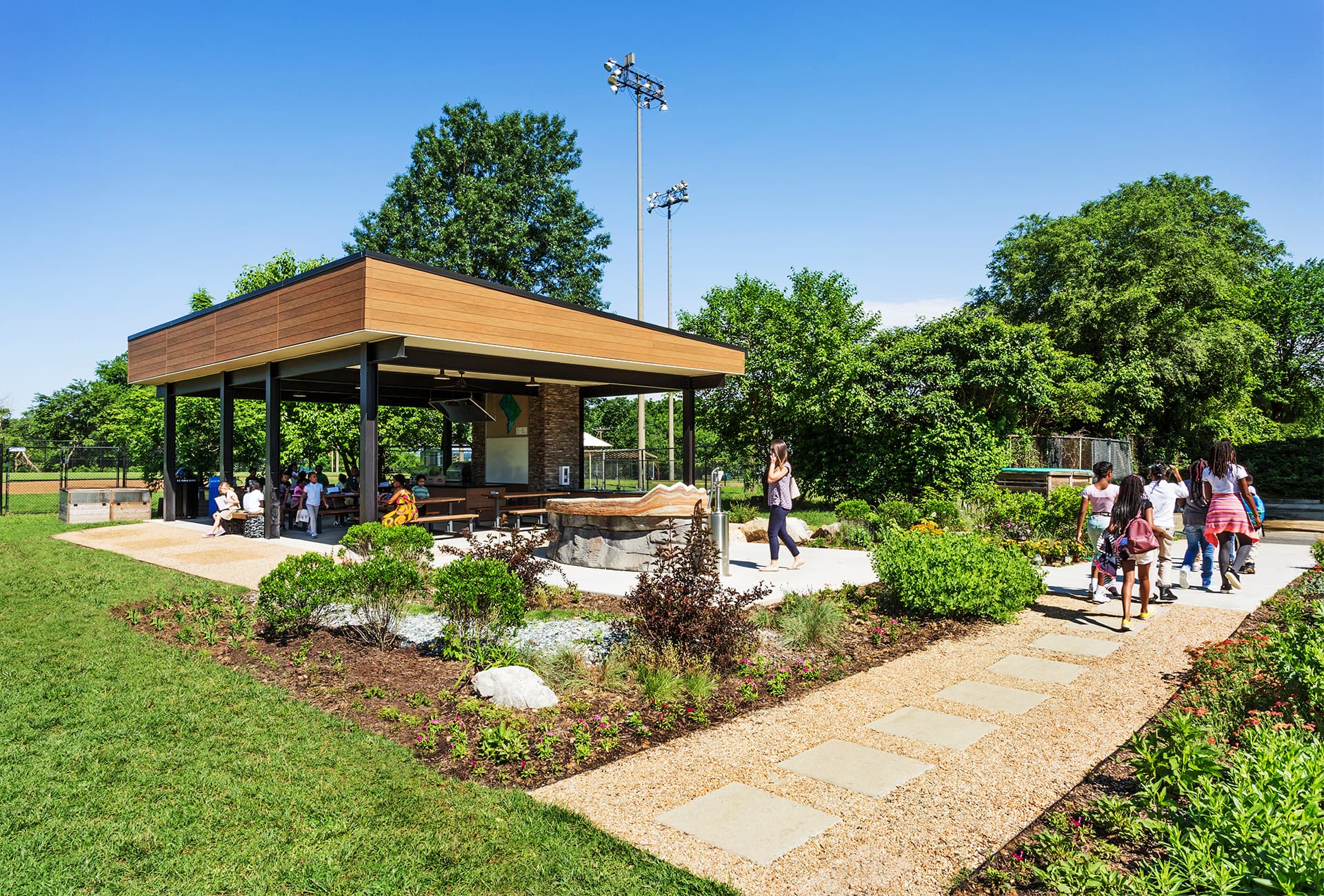
Growing Food at School
Recognizing the need for a new approach to learning about healthy food choices, Leckie Education Campus sought an outdoor teaching kitchen to present food in a fun way, promoting better health and nutrition awareness among students.
Serving one of DC’s lowest-income minority communities and located within a food desert where access to healthy food is limited, Leckie Education Campus, a DC Public School, sought to reduce their students’ food insecurity as a means to increase their academic achievement. To fill the nutrient gap, Leckie Education Campus expanded their options by adding an outdoor demonstration kitchen and wellness curriculum that teaches kids how to grow healthy foods.
LandDesign worked alongside the design/build contractor on behalf of DC Public Schools to design the outdoor teaching kitchen and surrounding landscape. The pavilion-shaded outdoor teaching kitchen can accommodate up to 30 students and is equipped with two sinks for washing hands and fresh produce, a five-burner grill, a two-burner stove, a pizza oven, communal seating, a demonstration mirror and white board for instructional use, electricity and Wi-Fi, and ample storage. A teaching garden, featuring raised vegetable and perennial plant beds, is located adjacent to the kitchen pavilion, as are three compost bins–illustrating a closed-loop food-and-waste system. Led by Leckie’s staff of food & nutrition specialists and a garden coordinator, students are introduced to the process of food production, engaging in gardening, harvesting, and cooking food that they can be proud to eat.
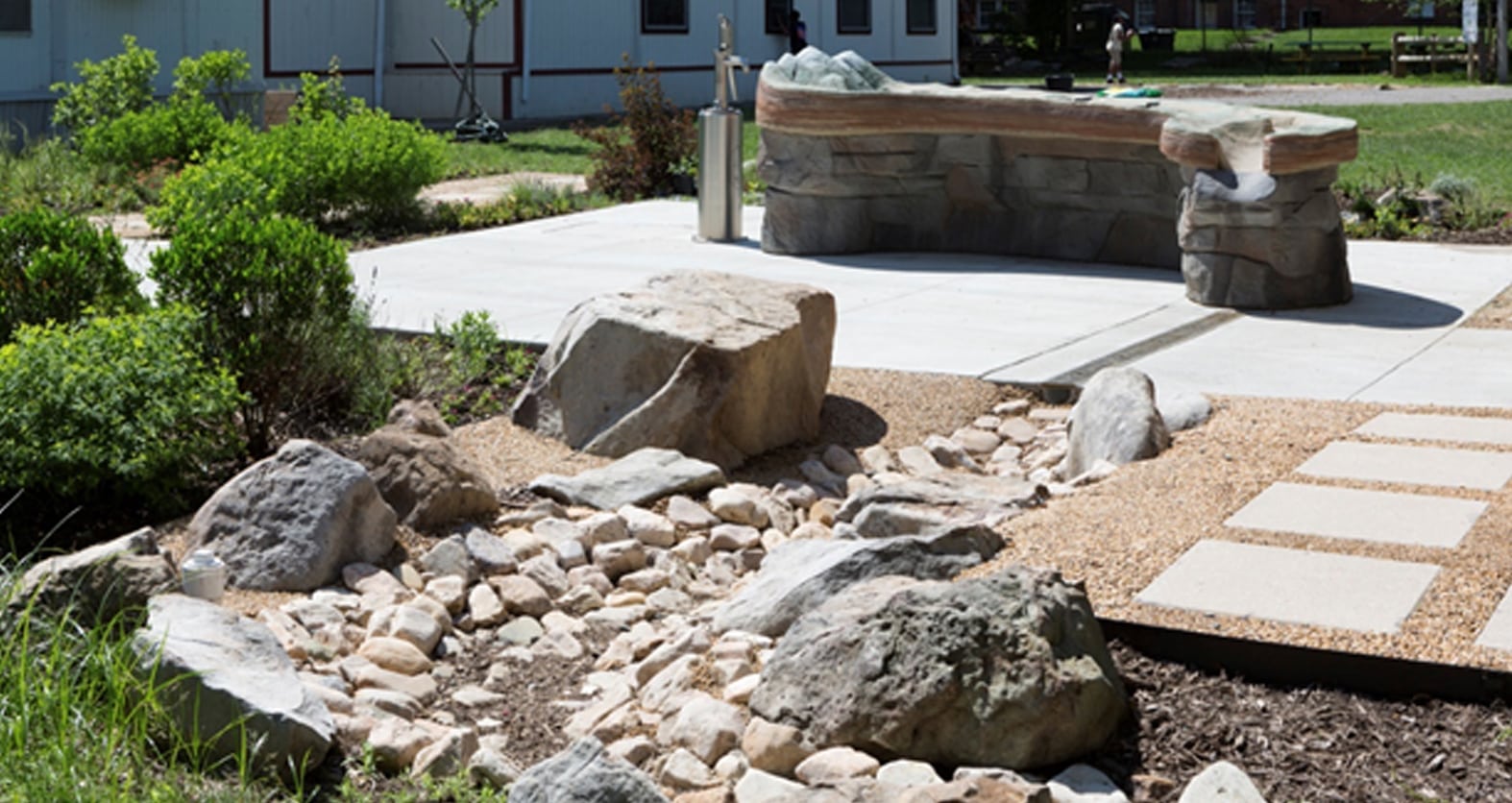
With the goal of getting kids excited about eating healthy food, LandDesign endeavored to create an engaging learning environment rife with opportunities to interact with the food cycle. The unique outdoor classroom space encourages experiential learning, where students learn about agriculture, food, health, and nutrition by actively growing, preparing, eating, and composting food on-site.
To further activate the site with hands-on learning opportunities, the design features an interactive hand-pump water feature that educates students on water quality, erosion, and hydrology. Additionally, the rainwater runoff from the pavilion roof was engineered to drain into a rain barrel, with overflow runoff feeding into a dry creek bed and rain garden landscaped with native plants. Today, the outdoor teaching kitchen at Leckie Elementary is being used to provide new and fun ways of learning and offers teachers a unique outdoor space for curriculum training.
This project presented an opportunity to collaborate with Out Teach, formerly REAL School Gardens, a national nonprofit that builds learning gardens in elementary schools as a tool to improve student engagement and academic achievement. A collaborative partner of LandDesign, Out Teach assisted in creating the raised plant beds and hosted a community volunteer day where Leckie staff, students, parents, and community volunteers–including LandDesign staff–gathered to bring the vision to life.
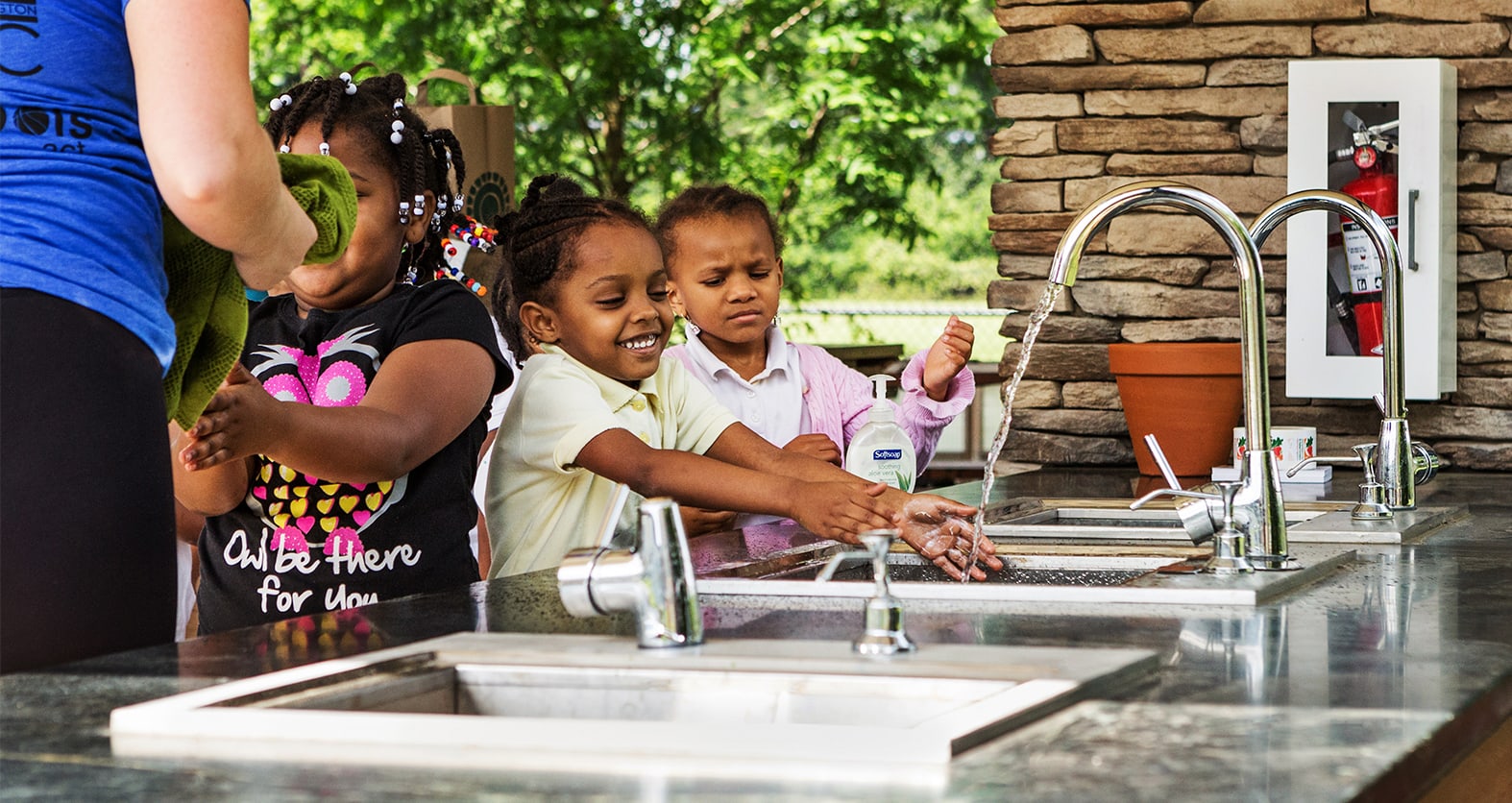
While an outdoor kitchen was the main request of the client, this project aimed to go beyond culinary training, introducing children to food cultivation, sustainable practices, and the value of nature. To meet the client’s aspirations while honoring space and budgetary constraints, the elements of the space had to do double duty. For example, the rain garden and dry creek bed were required for stormwater management, but the integration of large boulders and seasonal native plants invite children to interact with the water filtration process and explore the native habitat. The rain barrel introduces children to the importance of water conservation, as it collects the pavilion’s water runoff and reuses it for irrigation. The project constraints prompted creativity, ensuring every element was optimized for education and engagement.
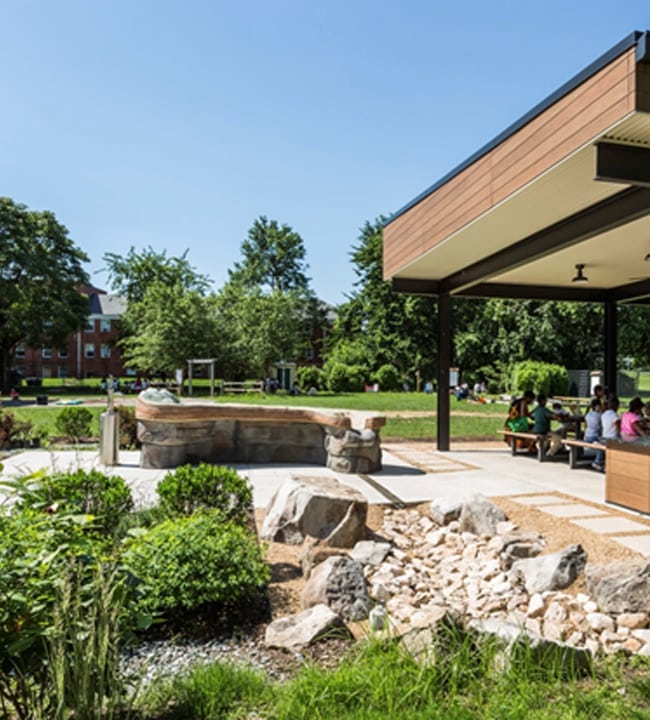
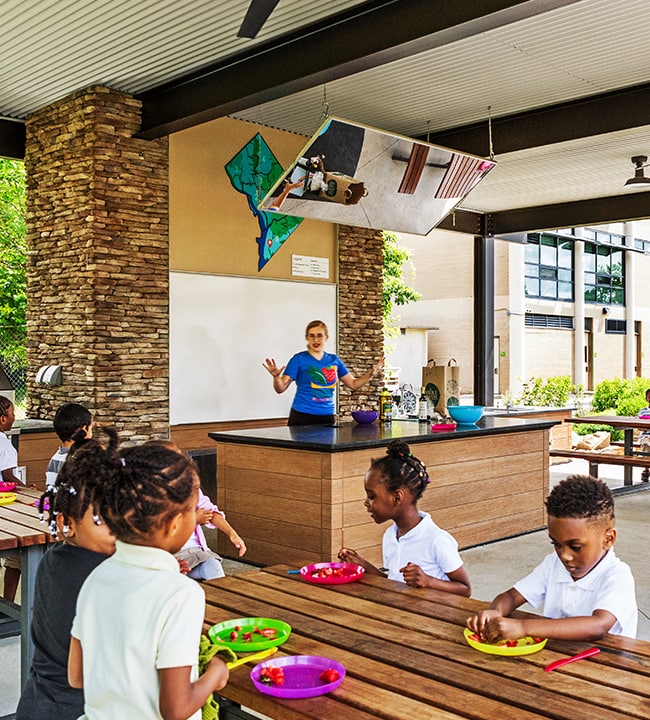
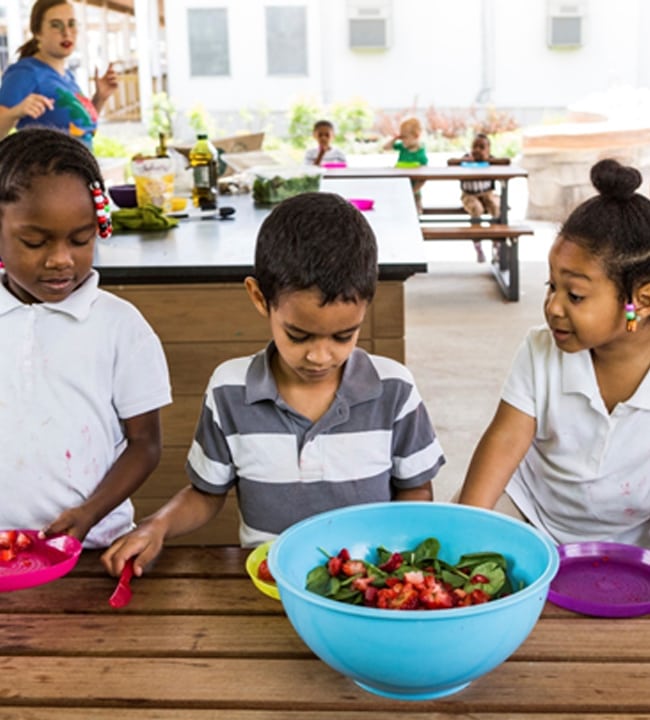
Physical
Bring food cultivation to an urban, food-scarce community, increasing interaction with nature and access to healthy food options
Functional
Maximize educational opportunities within the project’s defined space and financial constraints
Social
Present healthy food in a fun, engaging way, prompting healthier eating habits while improving academic performance

Physical
Bring food cultivation to an urban, food-scarce community, increasing interaction with nature and access to healthy food options

Functional
Maximize educational opportunities within the project’s defined space and financial constraints

Social
Present healthy food in a fun, engaging way, prompting healthier eating habits while improving academic performance